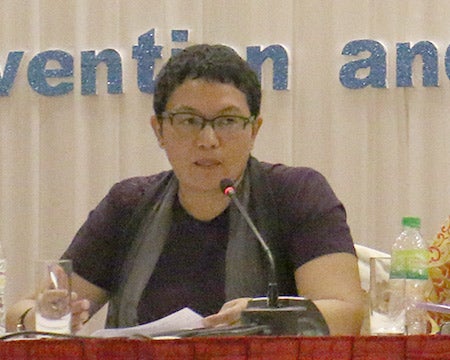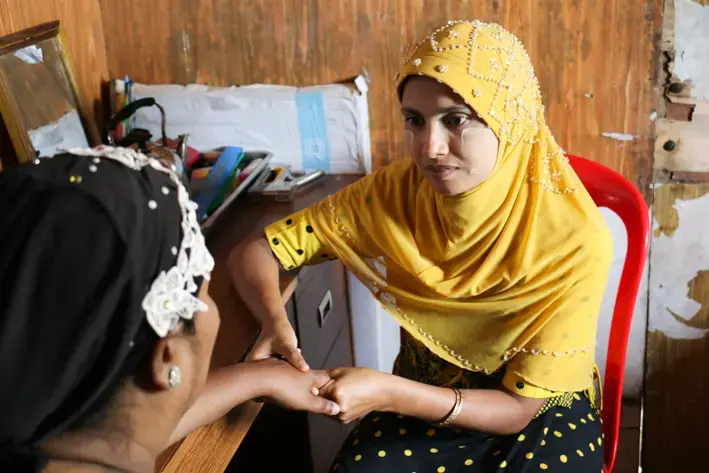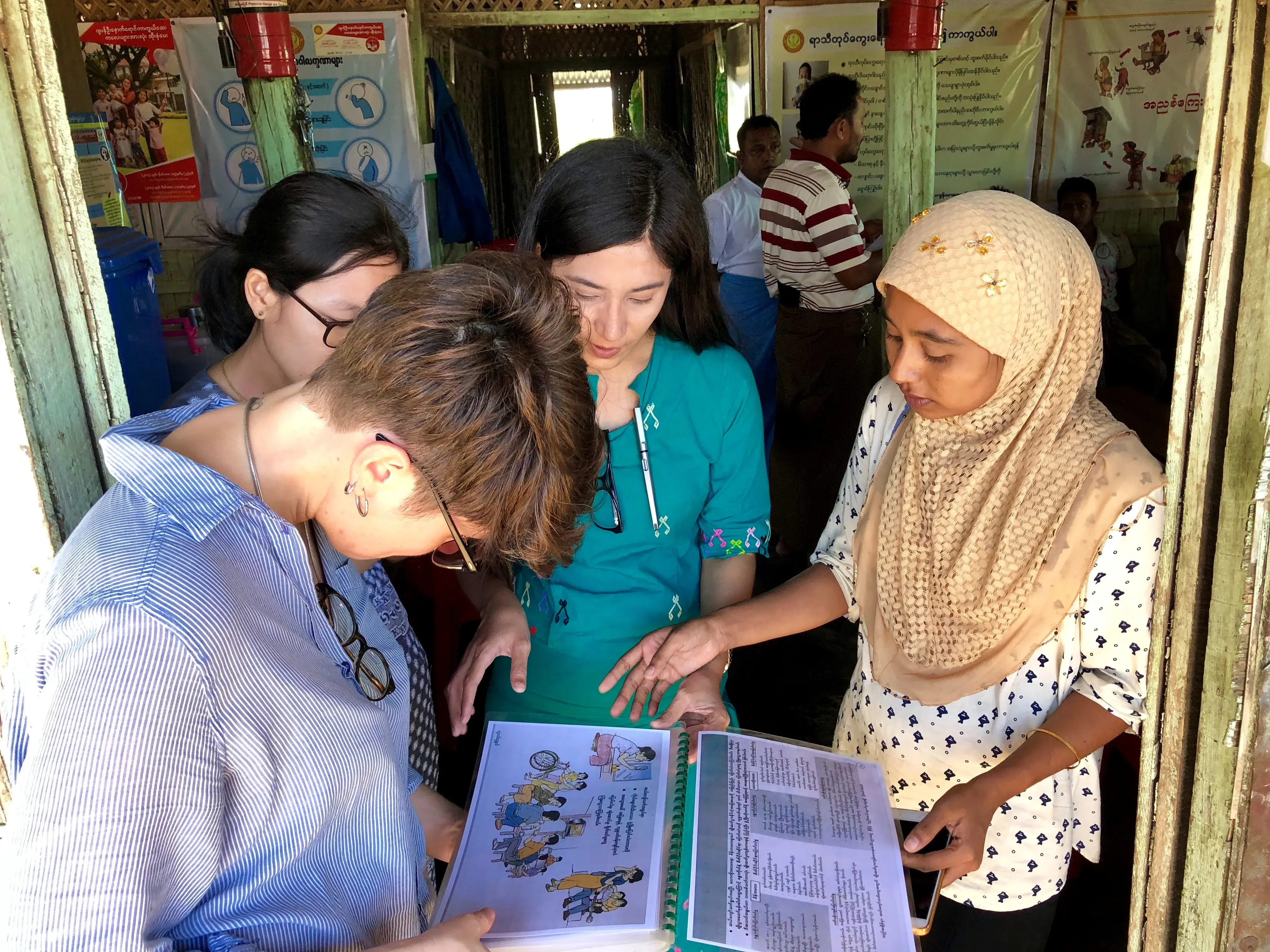Many voices were raised and constructive comments were brought to the forefront by various stakeholders regarding a 19-chapter draft National Law on Protection and Prevention of Violence against Women (PoVAW) that is nearing completion. Organized by the Ministry of Social Welfare, Relief and Resettlement (MSWRR) which is the focal ministry for Women’s protection and development, Orientation Workshop on the Law to Prevent and Protect Women from Violence (Draft) was held on 16 July 2015 in Nay Pyi Taw. As a sign of the inclusiveness nature of the consultation vocal women organizations also participated, expressing their opinions and suggestions on the draft law. This has helped to further enhance the development of a comprehensive draft law prior to submission to the Law Drafting Committee and subsequently to parliament later this year.
This landmark law when promulgated will be the very first law in Myanmar that will prevent violence against women (VAW). Currently, the outdated Penal Code which dates back to the British colonial rule, describes in general the offences and penalties involving sexual and gender-based violence. However, it has not been able to reflect upon the contemporary values of Myanmar society or address the needs and protection of women’s experiences of violence. Moreover, Myanmar is the only country in ASEAN that does not have a Special law on Women. At the workshop, participants from Gender Equality and Women’s Empowerment Sector Working Groups (GEWE SWG) from CSOs, INGOs/NGOs, Women’s Networks, UNs and Donors showed their strong enthusiasm and support in completion and realization of this law, as well as voicing their desire of participation in the decision process when submitted to parliament for passing into law. One of the major points raised by participants was that the law should be in line with CEDAW Principles and especially women’s sexual and reproductive rights should be protected under this PoVAW Law regardless of their religion and ethnicity as well as occupational background.
During the opening remarks, Union Minister for Social Welfare Dr. Daw Myat Myat Ohn Khin emphasized the importance of the law: “As Myanmar is a member of the Convention on the Elimination of All Forms of Discrimination against Women (CEDAW), ASEAN Committee on Women and ASEAN Commission of the Prevention and Protecting of the Rights of Women and Children, adoption and effectively enforcing the draft Law would be meeting the State’s obligation as members of the UNCEDAW Committee and as a member of ASEAN.”
The draft law covers Domestic Violence including Marital Rape, Sexual Violence, Harassment by stalking, Harassment in Work place and public place and Violence through tradition and customary practice. The draft law stipulates the benefits and services to be rendered to victims, as well as details in Prevention and Precautionary Plans, Protection Orders and Formation of Protection Team and its duties and Minimum fine, imprisonment and penalties by anyone committing violence against women according to this law.

The panels discussion were led by Daw Khin Zar Naing, UNFPA Senior Programme Officer, Dr. Jean D’Cunha, Senior Gender Advisor (Focal Point for UN Women), U Kyaw Sein, Deputy Director General (retired) from Union Attorney General Office, Daw Sandar Thant, Gender Specialist from UNDP and Daw May Sabe Phyu, Director from Gender Equality Network (GEN), who were heavily involved in the drafting of the anti-violence law.
Among the participants from various Ministries, Parliamentarians, Embassies, UN Agencies, I/NGOs and CSOs, U Maung Maung Swe, Chairman of Pyithu Hluttaw’s Social Development Committee parliamentarian assured that civil society groups will be invited to parliament to offer their opinions on the draft law before it is brought up for voting.
UNFPA has been responding to the needs of women in Myanmar for example in 2012, UNFPA began a SRH Sexual and Reproductive Health (SRH) programme in Rakhine. In 2013, UNFPA established Sexual Reproductive Health (SRH) and Gender Based Violence (GBV) interventions in Kachin. UNFPA actively participated in the formulation of a 2015 Humanitarian Response Plan for Myanmar, which is inclusive of indicators to ensure that GBV issues are addressed and that life-saving SRH care and services are provided for displaced women and girls.
In Rakhine, UNFPA, through the International Rescue Committee, are accessing approximately 40% of the total displaced population of women and girls in Sittwe through Women and Girls Centres. In Kachin, UNFPA support the Metta Development Foundation who have established 8 Women and Girls Centres covering 39 camps and villages since March 2014. These centres are reaching approximately 50% of the women and girls in the conflict affected regions. UNFPA provides Dignity Kits to protect the integrity and dignity of women and girls and reduce their vulnerability to GBV in times of crises. Items in the kit include underwear, sanitary napkins, a longyis (sarong), and other hygiene related items.





